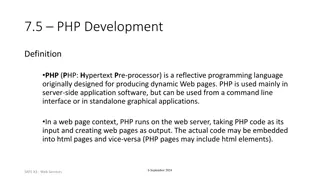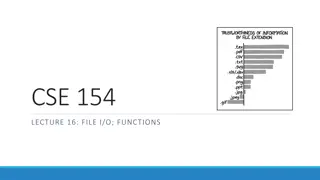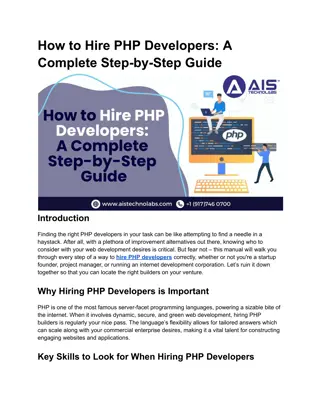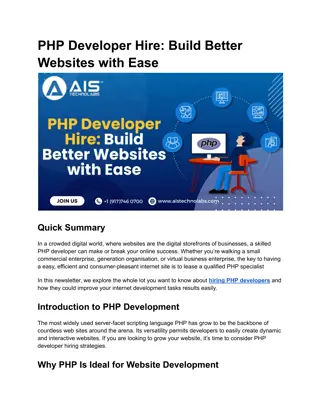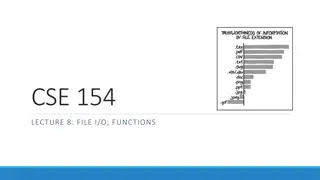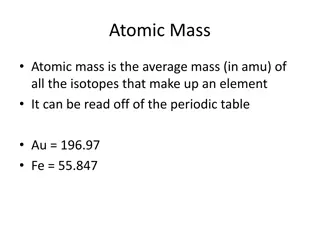
Crafting Effective Research Questions and Hypotheses
Understand the importance of research questions and hypotheses in narrowing down the study's purpose, whether qualitative or quantitative. Learn tips for writing qualitative research questions and discover the significance of quantitative hypotheses in exploring variable relationships.
Download Presentation

Please find below an Image/Link to download the presentation.
The content on the website is provided AS IS for your information and personal use only. It may not be sold, licensed, or shared on other websites without obtaining consent from the author. If you encounter any issues during the download, it is possible that the publisher has removed the file from their server.
You are allowed to download the files provided on this website for personal or commercial use, subject to the condition that they are used lawfully. All files are the property of their respective owners.
The content on the website is provided AS IS for your information and personal use only. It may not be sold, licensed, or shared on other websites without obtaining consent from the author.
E N D
Presentation Transcript
Research questions & hypotheses Week 8
Purpose of Research Questions (RQs) and Hypotheses They narrow the purpose statement to predictions about what will be learned or questions to be answered in the study
Qualitative research questions In qualitative studies research questions assume two forms: Central question Associated subquestions
Tips for writing qualitative RQs 1 Ask no more than 5-7 subquestions in addition to your central questions Relate central question to specific qualitative strategy of inquiry Begin research questions with the words what and how to convey an open and emerging design Focus on single phenomenon or concept Use exploratory verbs that convey the language of emerging design Report (or reflect) the stories (e.g. narrative research) Describe the essence of experience (e.g. phenomenology) Discover Seek to understand (e.g. ethnography) Explore a process (e.g. case study)
Tips for writing qualitative RQs 2 Use these more exploratory verbs as nondirectional rather than directional words Expect RQs to evolve and change during the study in a manner consistent with the assumptions of an emerging design Use open-ended questions without reference to literature or theory Examples: How do early adolescent females read literature that falls outside the realms of fiction? A) How do women in a psychology doctoral program describe their decision to return to school? B) How do women in a psychology doctoral program describe their re-entry experiences? C) How does returning to graduate school change these women s lives?
Quantitative research questions Quantitative RQs inquire about the relationship among variables that the investigator seeks to know Quantitative hypotheses are predictions the researcher makes about the expected outcomes of relationship among variables
Tips for writing quantitative RQs Use of variables in RQs or hypotheses is typically limited to three basic approaches Researcher may compare groups on independent variable to see its impact on dependent variable Researcher may relate one or more independent variables to one or more dependence variables Researcher may describe responses to independent variable, mediating, or dependent variables (descriptive study) Most rigorous form of quantitative research follows from a test of a theory Independent and dependent variables must be measured separately and not measured on the same concept. This procedure reinforces the cause-and-effect logic of quantitative research To eliminate redundancy, write only research questions or hypotheses not both unless the hypotheses build on RQs If hypotheses are used, there are two forms: Null Alternative Directional Non-directional
Examples Quantitative research questions How often do people aged 30 to 40 visit their parents? How does stress at work relate to quality of life in people working night shifts? Does a stressful work environment lead to higher turnover rates? Qualitative research questions What is it like growing up in a single-parent family in a rural environment? What are the experiences of people working night shifts in health care? How would overweight people describe their meal times while dieting?



